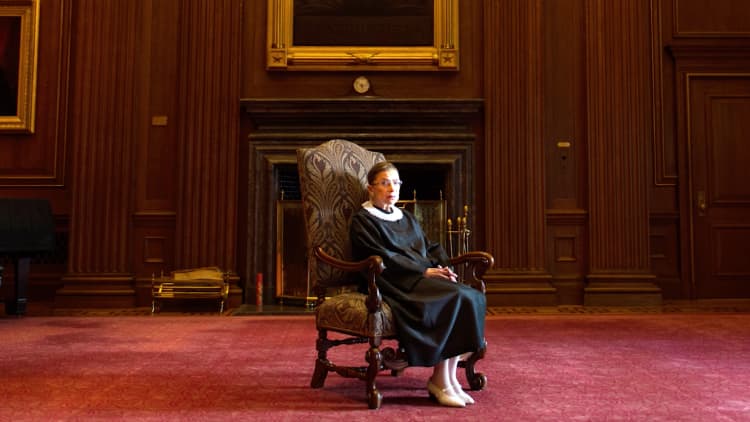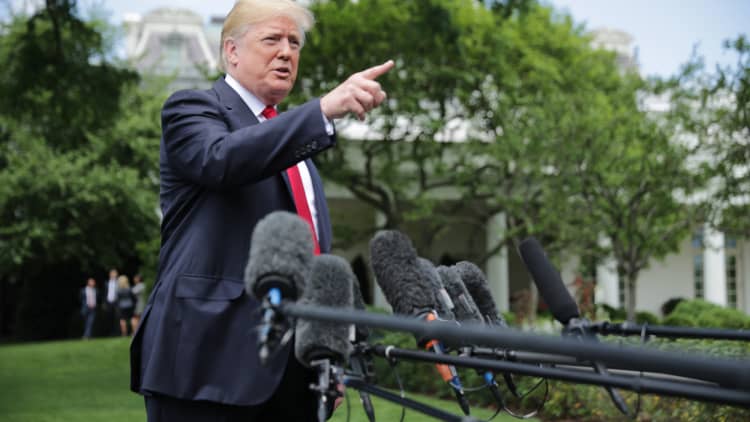The justices of the U.S. Supreme Court on Monday heard arguments in a First Amendment case that experts have said could have ramifications for how the nation's largest social media companies are permitted to moderate the content on their platforms.
But the justices' questions during oral argument revealed a reluctance to enter into that fraught arena. This suggests the future ruling on the matter will hew narrowly to questions specific to the facts of the case, which involved not social media but public-access television channels in New York.

In particular, Justices Brett Kavanaugh and Stephen Breyer, who sit on opposite ends of the ideological spectrum, expressed unease with the notion that the First Amendment could apply to private companies operating private property, such as Twitter and YouTube.
And the other justices, led by Chief Justice John Roberts, largely homed in on extremely narrow questions of fact that suggested the court was not gearing up for a large revision of its existing precedent.
"Nothing about today's hearing suggested that Twitter is in danger of being found to be a state actor any time soon," said Jeffrey Robbins, a partner at Saul Ewing Arnstein & Lehr and a former assistant U.S. attorney for the District of Massachusetts.
That's potentially good news for the social media companies, which under the current interpretation of the First Amendment have broad discretion to remove content from their platforms or prevent people from using their services.
At stake for those companies are decisions such as the removal in August of content from right-wing conspiracy theorist and provocateur Alex Jones, whom Facebook, YouTube and others accused of violating their terms of service. If Jones had been entitled to First Amendment protections against social media companies, that removal would have been legally dicey or impossible.
"I think that the court sees this as a narrow case," said Paul Hughes, who represented the respondents, in an interview with CNBC following oral arguments. "I don't anticipate a broad ruling coming out of this case that would affect social media or internet companies."
Regarding the primary issue being disputed in the case, which is broadly whether public-access television can constitute a public forum, it was not clear at the end of an hour of argument how the justices would rule.
A decision in the matter is expected by late June.

Suit brought by two producers
The case arose after two television producers in New York brought a suit against the Manhattan Neighborhood Network, a private company that operates public-access television channels in the borough.
The producers, DeeDee Halleck and Jesus Melendez, claim that they were unlawfully suspended from airing programs on the channels after they published a video that was critical of the network.
While most private companies are not subject to First Amendment liability, there are certain exceptions in cases where the private company is serving a public function or is closely intertwined with the government.
Halleck and Melendez argued that MNN was effectively an agent of the government, and the U.S. 2nd Circuit Court of Appeals agreed with them. While MNN is private, two members of its 13-person board are appointed by the borough president, who also awarded MNN jurisdiction over the public-access channels.
The ruling from the 2nd Circuit sparked alarm among internet-rights groups and others, who worry that a Supreme Court ruling could extend the defining features of a "state actor" and by doing so potentially jeopardize the constitutional status quo among the major technology companies.
In a brief filed with the top court, the Electronic Frontier Foundation, an internet civil rights group, urged the justices to "rule narrowly, and with an eye toward application of its ruling in other contexts."

The group wrote that lumping social media in with state actors, or issuing a broad ruling that permitted lower courts to do so, could "wreak unintended havoc on the rights of online speakers and the private platforms they use to disseminate their messages."
Breyer and Kavanaugh asked pointed questions during argument about which other companies might be affected if MNN is considered a public forum.
Kavanaugh asked Hughes, the attorney representing the producers, whether the state imposing regulations on companies would be enough to expose those companies to First Amendment liability, and noted the concerns that had been raised about companies such as Twitter and YouTube.
Hughes, who has argued that the facts at issue in the case would not apply to social media companies — or even all public-access television channels — responded that that situation would be different. He said there is a limitation on the government's ability to control speech on property it does not control.
"This is property that it does control," he said.
Breyer seemed skeptical, though, saying that "it's not so clearly different."
Breyer noted that the dividing line between MNN and other regulated companies could be difficult to determine, given the broad range of government entanglement in private U.S. firms.
Those comments formed the entirety of the questioning that could implicate social media, leaving the remainder of Monday's arguments to fact-specific issues related to how much control MNN had over the programming that runs on its platforms.
In particular, the justices appeared focused on whether MNN was permitted to curate its programming, with several of the court's liberals appearing intent on classifying the network as an agent of the state.
Roberts and Justice Samuel Alito, as well as Justice Elena Kagan, focused much of their probing on factual questions related to who owned the public-access channels.
The focus on ownership augurs well for large internet companies, which are not owned by the government, said Robbins, the former assistant U.S. attorney.
"That's a criterion that you would think cuts sharply against a finding of state action in the cases of social media enterprises," Robbins said. He said that the justices' focus on how much discretion MNN has over the content on its platforms also suggests that the social media companies are not in danger.
Justice Ruth Bader Ginsburg, who asked the first question on Monday, said that it appeared to her that MNN had no independent judgement, and therefore was "an administrator of a city policy," while Justice Sonia Sotomayor suggested that MNN was "the agent directly of the state."
The justices hinted toward a ruling that will be specific to this particular case.
At one point, Breyer interrupted Michael de Leeuw, the attorney for MNN, while the attorney was making a point about the court's previous rulings.
"I can read the cases," Breyer said. "What I can't do is figure out what the facts are."


